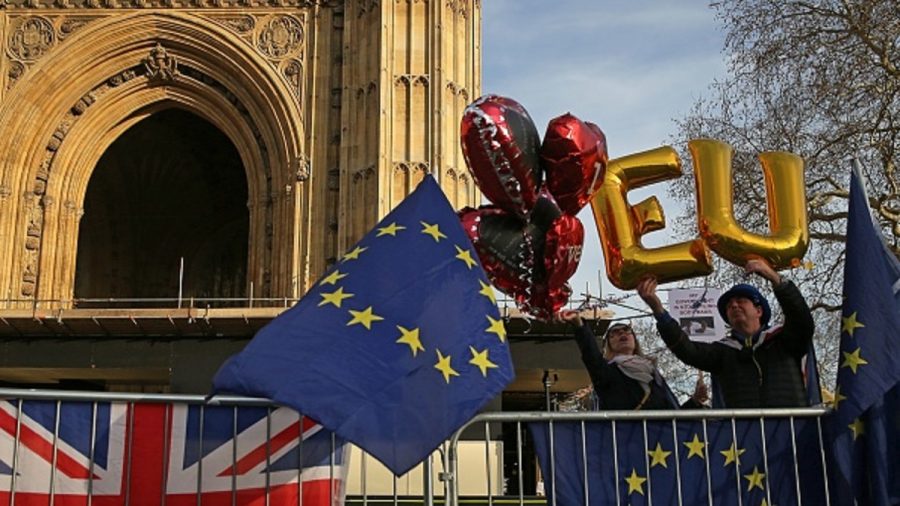LONDON—At the G7 summit in August, the head of the EU council made it clear he was against a no-deal.
“One thing I will not cooperate on is no-deal. And I still hope that Prime Minister [Boris] Johnson will not like to go down in history as Mr. No-Deal,” Donald Tusk said.
A no deal means leaving the EU without a withdrawal agreement. The UK would trade with the EU in the same way as it trades with the U.S. or any other country.
“I think moving to another legal order overnight is not a good idea. Businesses need time to adapt, politics need time to adapt,” said Seistka de Groot, founder of TradePeers Ltd. She advises businesses on how to prepare for Brexit.
“A lot of businesses come to me and say, we’re not going to prepare as we don’t know what’s going to happen, and I tell them, we won’t know what’s going to happen in the next couple of years,” she said.
De Groot has made a series of Brexit maps, as a visual aid for businesses.
“Every sector will have to look at its regulations,” she said.
Some businesses are stockpiling or considering moving their offices abroad, like Dutch twin sisters, Raissa and Joyce De Haas, who run drinks company Double Dutch in London. They told me how Brexit is impacting their business.
“Our biggest concern is that the UK becomes a country that’s less attractive to do business with,” said Joyce De Haas, co-founder of Double Dutch.
The company, which has 18 employees, is holding stock for 12 to 15 weeks, twice as long as usual. They are planning to move half of their production from Northern Ireland, to Belgium.
“It’s just too much of a risk to have everything here in the UK, while we export to 25 other countries as well, it just makes sense to have it separately. So we just produce here in the UK, for a domestic market, and then we produce in mainland Europe, for our export market,” said Joyce.
If there’s a no-deal Brexit, she said they would need to hire someone to manage their relations between the UK and EU, and possibly have a subsidiary company in the Netherlands to manage their operations to export markets.
“We all have an idea of what can happen worst case scenario, and best case scenario, I don’t think anybody knows, how and what’s going to happen next,” she said. “I’d rather Brexit didn’t happen, but it’s a growing industry, we’re a growing business. It’s not going to affect our sales. It’s extra hassle, extra time and management that goes into it, and we can prepare to the best level that we can,” she said.

